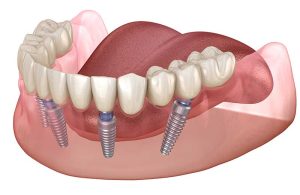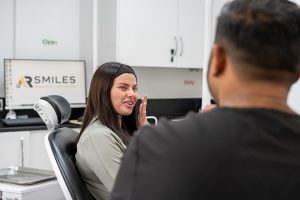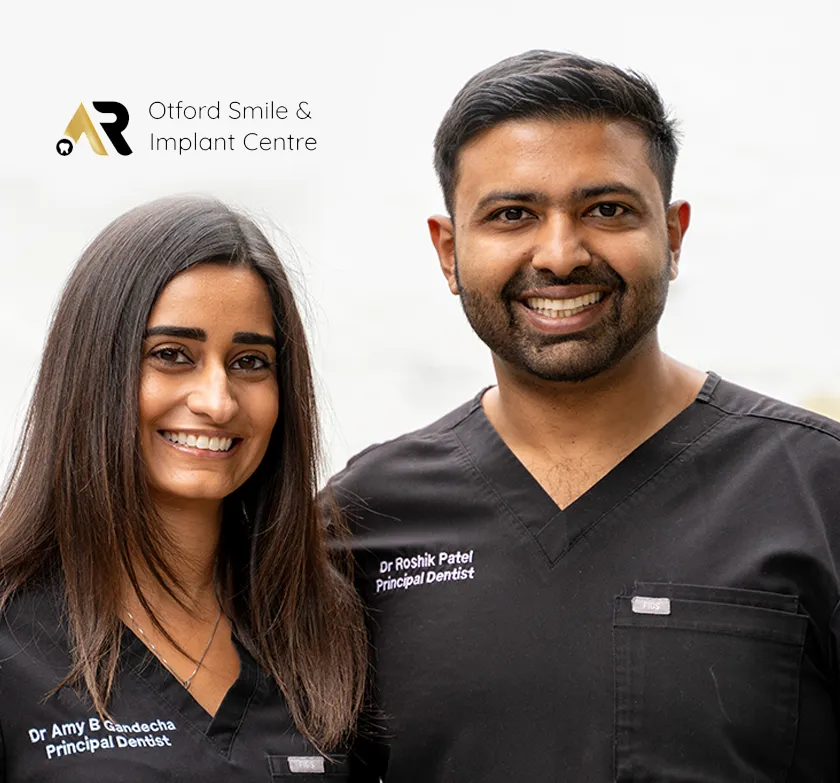Getting dental implant surgery is a significant step towards restoring your smile and regaining normal function. While it’s exciting to think about eating comfortably again, it’s essential to follow dietary restrictions during the initial healing period. These restrictions are temporary but vital in ensuring the long-term success of your dental implants.
Understanding Dental Implants
Dental implants are permanent replacements for missing or damaged teeth. They function very much like natural teeth, restoring over 80% of your original chewing ability. Whether you’re replacing a single tooth, multiple teeth, or transitioning from dentures, implants offer a stable, long-lasting solution.
Each implant consists of a small titanium post that acts as the artificial tooth root. This post is surgically inserted into the jawbone, where it fuses with the bone in a process called osseointegration. Once fully integrated, an abutment is attached to the post, serving as the connector for the crown – the visible part of the tooth.
Implants are carefully designed to match the size, shape, and colour of your natural teeth. The full process typically takes a few months, involving several visits to your dentist, but the result is a seamless, natural-looking smile.

Understanding the Dental Implant Procedure
At AR Smiles Dental & Implant Centre , the implant journey follows a structured process:
- Removal of damaged or failing teeth, if needed.
- Jawbone preparation, which may include bone grafting.
- Placement of the implant post (the artificial root).
- Healing period to allow integration with the jawbone.
- Attachment of the abutment (connector).
- Placement of the crown or other prosthetic tooth.
Each stage is crucial, and healing time between steps helps ensure a successful outcome. You’ll receive detailed guidance from your dentist, including dietary and oral hygiene instructions, at every phase.
Why Healing Time Matters
Following the implant surgery, the jawbone needs time to securely bond with the titanium implant. This fusion is essential for stability. Rushing the healing process or ignoring aftercare can risk complications such as infection or implant failure.
During this period, avoiding certain foods and habits is just as important as taking prescribed medication or attending follow-up visits. Being cautious now leads to long-term satisfaction with your new teeth.
Foods to Avoid After Getting Dental Implants
In the first week to 10 days after implant placement, it’s best to avoid the following foods:
- Crunchy and hard foods: crisps, nuts, seeds, crusty bread, raw vegetables, hard sweets.
- Sticky foods: toffees, caramels, and chewy sweets.
- Acidic foods: tomatoes, oranges, lemons, and citrus juices.
- Hot and spicy items: spicy soups, curries, chillies, hot tea or coffee.

Also steer clear of tough-to-chew foods such as steak or baguettes. These can put unnecessary pressure on the healing implant site. Even seemingly healthy options like apples or raw carrots should be avoided initially, as they require excessive chewing.
Once healing progresses, you’ll gradually return to a normal diet. While dental implants function much like natural teeth, they can be more prone to surface staining—so it’s wise to limit drinks such as coffee, red wine, and cola to preserve your smile.
Foods You Can Eat After Getting Dental Implants
Maintaining proper nutrition during healing is key to recovery. For the first few days post-surgery, opt for soft, protein-rich foods:
- Protein: scrambled eggs, soft chicken, minced meat dishes, and flaky fish.
- Carbohydrates: mashed or baked potatoes, oats, soft bread, bananas, and well-cooked rice.
- Dairy: yoghurt, milk, soft cheeses, smoothies (without a straw), and protein shakes.
Smooth, easy-to-eat options like applesauce, soups (lukewarm), and blended vegetables are also excellent choices. Avoid drinking through straws, as suction may dislodge blood clots and disrupt healing.

Ensure you stay well-hydrated by drinking plenty of water. This not only aids general health but also helps flush out bacteria and support your immune system post-surgery.
When to Start Chewing Near the Implant Site
As you approach the end of the first week, you may begin chewing gently on the opposite side of your mouth or cautiously near the implant site. If you experience any sharp pain, prolonged discomfort, or swelling, don’t hesitate to contact our team at AR Smiles Dental & Implant Centre.
Additional Aftercare Tips
In addition to watching what you eat, follow these precautions to promote smooth healing:
- Avoid smoking and tobacco use: These delay healing and increase the risk of implant failure.
- Gentle rinsing only: Use saltwater rinses as directed, but do not swish vigorously.
- No spitting or drinking through straws: These create pressure that can disturb the surgical site.
- Avoid carbonated beverages: Fizz can irritate the implant area, and many soft drinks contain acids that are harmful to healing gums.
- Skip electric toothbrushes and water flossers initially: These can be too harsh during the early days. Use a soft-bristled manual brush and be gentle.
If you’re ever unsure about your aftercare routine or experiencing discomfort beyond what’s normal, reach out to your dental team.
Trust AR Smiles Otford for Expert Dental Implant Care
At AR Smiles Dental & Implant Centre, we specialise in advanced restorative and cosmetic dentistry, including dental implants. Our experienced team, led by expert clinicians, ensures each patient receives a personalised and comfortable treatment journey.
Whether you’re exploring options for replacing missing teeth or you need emergency dental implants in Sevenoaks or surrounding areas, we’re here to help. Book your consultation online or call our clinic to speak with a member of our friendly team

